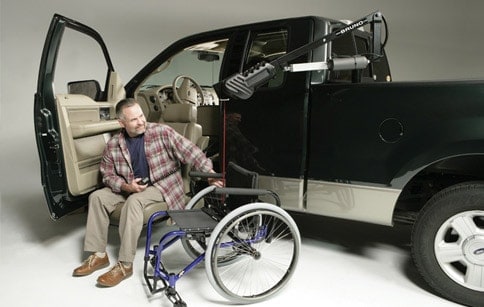Five things to consider when purchasing a wheelchair are the size and shape of your body, your diagnosis, lifestyle habits, the property terrain, and personal preferences.
Think carefully when buying mobility devices to ensure you are buying the best, most helpful options. Just as each person and their needs are distinct, wheelchairs vary in many aspects and features that could make a significant impact on your overall accessibility, utility, and satisfaction. Work with professionals that have insight into the variances that make one wheelchair better for the individual than others.
When shopping for a wheelchair, there are a few questions to ask yourself:
- Where will the wheelchair be used most often?
- What kinds of activities are routine, and what are some things that you want the chair to provide?
- How do you plan to transport the wheelchair?
- How much time will be spent in the wheelchair?
- What features are most important to myself and my caregivers?
- What kind of surfaces or slopes are involved in traversing my property, and what accommodations will be needed to go from one surface to another?
After asking yourself these questions, you may reveal the features and specifications that are warranted in your new chair, which will help to narrow-down potential options. Next, consider five instrumental and integral factors that can make-or-break your choices, ultimately finding the right chair to suit your distinctive needs. It is reported that the right wheelchair can be interpreted by the brain as being an extension of your body; make the transition and adaptation as comfortable and seamless as possible.
Five things to consider when purchasing a wheelchair are:
-
Body size, shape, and build
Physical build of the individual using the chair is an important thing to consider before buying. This includes age, as children and adults require different chairs. Gender, body-weight, and height are also considerations that a reputable vendor will look at when trying to find the right chair for you. This is why it is so important to meet with mobility pros for an assessment to determine which options are most viable and pragmatic.
-
The underlying diagnoses and medical needs
The reason you are using the wheelchair is also a pertinent consideration; this may relate to your strength and endurance, which may rule-out manual or electric options. Individuals living with paralysis or amputation will have distinct needs, while those using the chair for poor balance and fall-risk will have others. Discuss this with during initial consult to rule-out wheelchairs that simply are not suited to your physical condition and medical needs.
-
Your lifestyle and habits
Naturally, your lifestyle and activities that you engage in regularly are important elements that can impact your buying decision. If you plan on doing specific tasks in the chair, and whether you intend to use the chair for mainly sitting, can make a certain chair more suitable than others. Some individuals may only need the chair for transportation, that is, getting from one spot to another while others may want the ability to access any and all of life’s activities and opportunities while using their wheelchair. The choice is yours!
-
The lay of the land
The terrain of your home and property are also key when making your decision related to buying a wheelchair. Some buyers may only plan on using the chair when they are at home, or when they visit their local community. For this reason, variances in wheelchair wheels, shocks, and comfort may point to the best option for your needs. If you frequently use the sidewalks or roadways, live in a rural or rugged environment, and even if you plan to use the chair camping often are key factors to consider before buying a chair.
-
Personal preferences and impressions
Don’t overlook your own personal preferences, tastes, or impressions when selecting your new wheelchair; know that your new chair is an investment in mobility and access, inside the home and out. Ask friends, family members, or others that utilize mobility devices and chairs for their input and level of satisfaction to help make informed buying decisions.
Mobility device experts are the resource for finding the perfect chair
After buying the right chair, will you fully-understand the features and operation of it? Work with mobility vendors that are experienced with a proven record of satisfying customers and providing support after the sale. This ensures you have a reputable resource in the event of questions or issues later.
Don’t try to navigate the world of mobility aids alone; seek out assistance and support from experienced, reputable vendors that have your satisfaction in-mind. Try to come up with a list of basic needs, wants, and features to consider during your search for the perfect wheelchair, and share this with your mobility expert or representative to narrow-down your potential options.
President, Husband, Father, Grandfather Graduate of UC Davis- Bio Sci Major- Go Aggies! Jeff has extensive experience in all of Pacific Mobility’s products and services, and specializes in accessibility products as well as stairlifts, ceiling lifts and custom wheel chairs. His hobbies include spending time with family, gardening, mountain biking, exercising and off road motorcycle riding.
24 years as Owner/President of Pacific Mobility Center – selling, installing, and servicing stairlifts, porch lifts, ceiling lifts, pool lifts, handicap ramping, specialty wheelchairs, scooters, power wheel chairs, and other power mobility devices
Certified Environmental Access Consultant since 2008
Licensed General Contractor since 1998
Certified Aging in Place Specialist since 2016
Board Member for Home Access Professionals
Member of Association of Members of the Accessibility Equipment Industry (AEMA)




